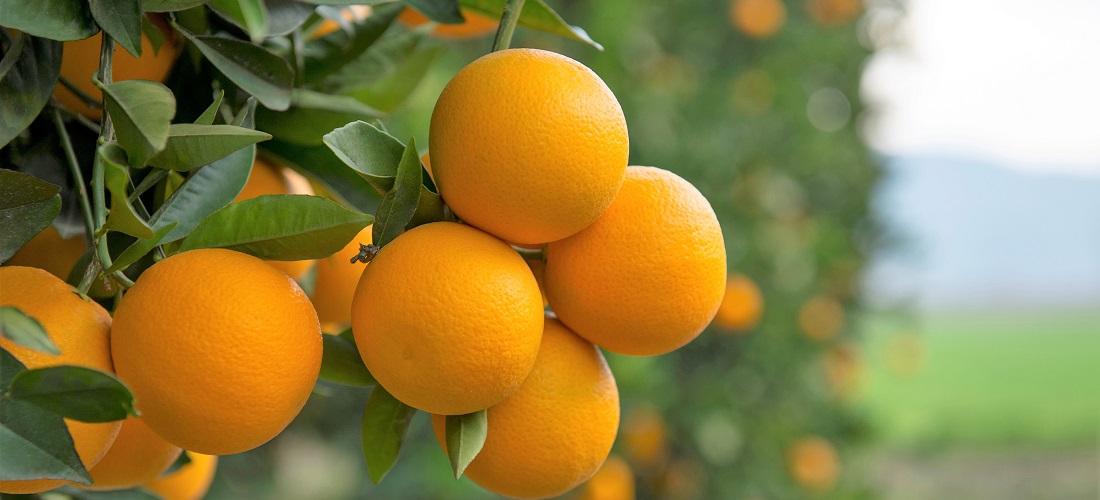
Orange juice industry seeks bilateral agreements to retain market share
Jan, 06, 2021 Posted by Ruth HollardWeek 202101
In recent years, trade agreements established by South Korea with different partners have practically closed the Asian country’s doors for Brazilian orange juice. Global demand for the drink has been declining for more than a decade and the loss of the South Korean market is seen by the export industry as a warning that Brazil should dedicate itself to establishing bilateral negotiations to guarantee space for products in the agribusiness sector.
A study by the Brazilian Association of Citrus Juice Exporters (CitrusBR), which represents the three largest orange juice exporters in the country and in the world (Citrosuco, Cutrale, and Louis Dreyfus Company), shows that with almost 52 million inhabitants and a GDP of US$ 1.6 trillion in 2019, more than double that in 2003, South Korea is a coveted market that imported only 46 tons of concentrated and frozen orange juice from Brazil in the 2019/20 harvest (which ended in June 2020), compared to 33,600 tons in 2002/02 (US$ 28 million).
The largest orange juice exporter in the world, responsible for about 80% of total shipments, Brazil exported just over 1 million tons of FCOJ in 2019/20. The country also sells Not From Concentrate (NFC) juice totaling about US$1.8 billion. As has been the case for decades, sales were mainly directed to the European Union, the United States, and Japan, and significant advances depend on the consolidation of sales in countries such as China and advantageous conditions to access other borders.
It is in this case that South Korea fits. The country has established an ad valorem tariff of 54% in the World Trade Organization (WTO), that can be charged to all exporters, but agreements signed by Seoul with the USA and the EU – but not with Brazil – took Brazil out of the game.
See the main destinations for Brazilian orange juice below:
Main Destinations for Brazilian Orange Juice Exports (HS 2009.1) | Jan to Nov 2019-2020 | WTMT
Source: DataLiner
According to CitrusBR, the agreement with the USA was signed in 2012, and in the following year, the Americans, with zero tariffs, became the largest exporters of orange juice to the South Korean market. In 2015, the trade agreement was signed between South Korea and the EU, and between 2017 and 2019 European juice managed to “steal” part of the market share occupied by the Americans in the Asian country, even though the EU is a major importer of the product.
In addition, another movement started to pressure sales of orange juice as a whole in South Korea: the advance of juices of other flavors. In 2001, says CitrusBR, FCOJ accounted for 68% of juice imports in general in the country, but this share fell below 15% in 2019. According to CitrusBR, there was a large increase in 2019 in demand for “mixed drinks”, mixes of fruits and vegetables, in South Korean retail and in sales through online platforms. And that increase was achieved after trade agreements with countries like Vietnam, Turkey, and Thailand.
“Currently,” says the study, “South Korea has 15 free trade agreements with 12 different countries and three economic blocs. As long as Brazil is subject to a tariff of 54%, it will be very difficult, if not impossible, to recover the South Korean market to make Brazilian orange juice competitive again.
See the chart below for the history of Brazilian orange juice exports:
Brazilian Exports of Orange Juice (HS 2009.1) | Jan 2017 to Nov 2020 | WTMT
Graphic source: DataLiner (To request a DataLiner demo click here)
Source of report: Valor Econômico
-
Shipping
Apr, 03, 2024
0
Eight missing after Chinese fishing boat collides with Panama container ship
-
Ports and Terminals
May, 10, 2022
0
National and foreign companies announce their intention to compete for the STS10 terminal
-
Shipping
Mar, 05, 2024
0
Maritime insurance surges as Red Sea crisis lingers
-
Shipping
May, 29, 2024
0
ANTAQ Unveils Madeira River Concession Project to Investors



